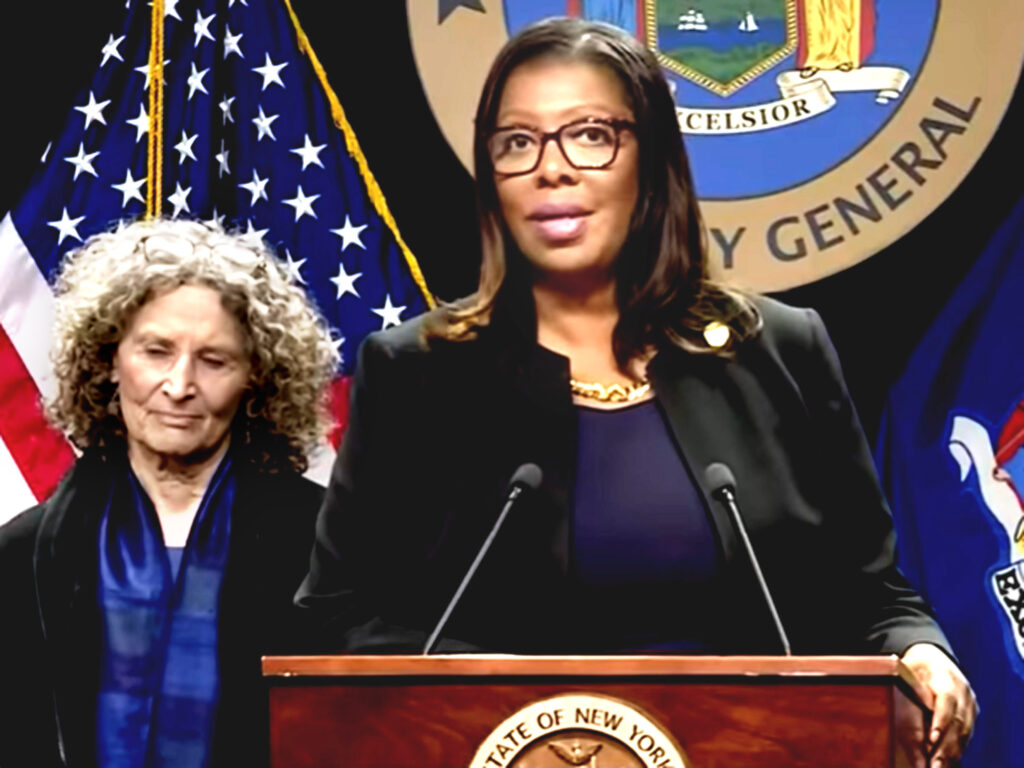Blockbuster
REPORT: Nursing Home Residents Poorly Served
Editor’s Note: Here are the recommendations in state Attorney General Letitia James’ report, “Nursing Home Response to COVID-19 Pandemic,” which also discovered nursing-home deaths may be 50 percent higher than the Cuomo Administration let on. For Complete Text Click Here.

•Ensure public reporting by each nursing home as to the number of COVID-19 deaths of residents occurring at the facility — and those that occur during or after hospitalization of the residents — in a manner that avoids creating a double-counting of resident deaths at hospitals in reported state COVID-19 death statistics.
• Enforce, without exception, New York State law requiring nursing homes to provide adequate care and treatment of nursing home residents during times of emergency.
• Require nursing homes to comply with labor practices that prevent nursing homes from pressuring employees to work while they have COVID-19 infection or symptoms, while ensuring nursing homes obtain and provide adequate staffing levels to care for residents’ needs.
• Require direct care and supervision staffing levels that: (1) are expressed in ratios of residents to RNs, LPNs, and CNAs; (2) require calculation of sufficiency that includes adjustment based on average resident acuity; (3) are above the current level reflected at facilities with low CMS Staffing ratings; and, (4) are sufficient to care for the facility’s residents’ needs reflected in their care plans.
• Require additional and enforceable transparency in the operation of for-profit nursing homes, including financial transactions and financial relationships between nursing home operators and related parties, and relatives of all individual owners and officers of such entities with contractual or investor relationships with the nursing home. Through a variety of related party transactions and relationships, owners and investors of for-profit nursing homes can exert control over the facility’s operations in a manner that extracts significant profit for them, while leaving the facility with insufficient staffing and resources to provide the care that residents deserve.
• Ensure that nursing homes invest sufficiently in effective training so staff can fully comply with infection control protocols. Hold operators accountable for failures to have clinically appropriate policies in place and to effectively train staff to comply with them.
• Support manufacturing of PPE to facilitate sufficient supply of PPE for purchase by nursing homes. Enforce requirements that nursing homes have sufficient inventory of PPE for all staff to be able to follow infection control protocols.
• Ensure that adequate COVID-19 testing is available to nursing home residents and employees and require nursing homes to test residents and staff in accordance with CDC and DOH evidence-based guidelines.
• Eliminate the recently enacted immunity provisions that can provide financial incentives to for-profit nursing home operators to put resi-dents at risk of harm by refraining from investing
public funds to obtain sufficient staffing to meet residents’ care needs, to purchase sufficient PPE for staff, and to provide effective training to staff to comply with infection control protocols during pandemics and other public health emergencies.
• Formally enact and continue to enforce regulatory requirements that nursing homes communicate with family members of residents promptly, but not later than within 24 hours, of any confirmed or suspected COVID-19 infection, and of any COVID-19 confirmed or suspected death.
• Increase staffing at DOH to ensure sufficient skilled resources for oversight, complaint assessment, surveys, inspections and immediate responses to information requests from state agencies in support of health care and law enforcement efforts.
• Ensure that nursing homes engage in thoughtful planning regarding post-mortem care needs and implement and train staff on policies for dignified care of the remains of deceased residents.
• Urge families to CMS Care Compare online database, ask questions of nursing homes relating to staffing, policies, procedures, and recent and current COVID-19 infections of staff and residents, and to obtain information relevant to their current or future long-term care decisions for their loved ones. Where possible, visit family member residents in person and through “window” visits and videocalls even if resident is unable to communicate, to provide emotional support and to enable observation of the resident’s physical appearance and condition. Ensure family members know to report suspected neglect or abuse to DOH and OAG.

